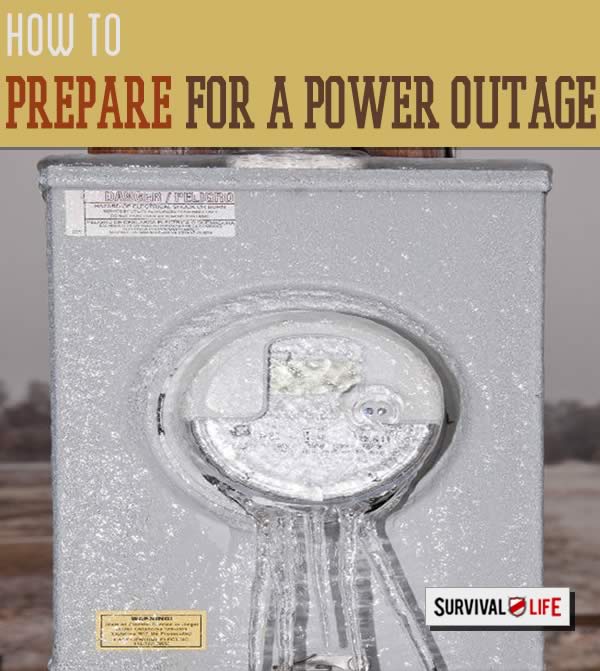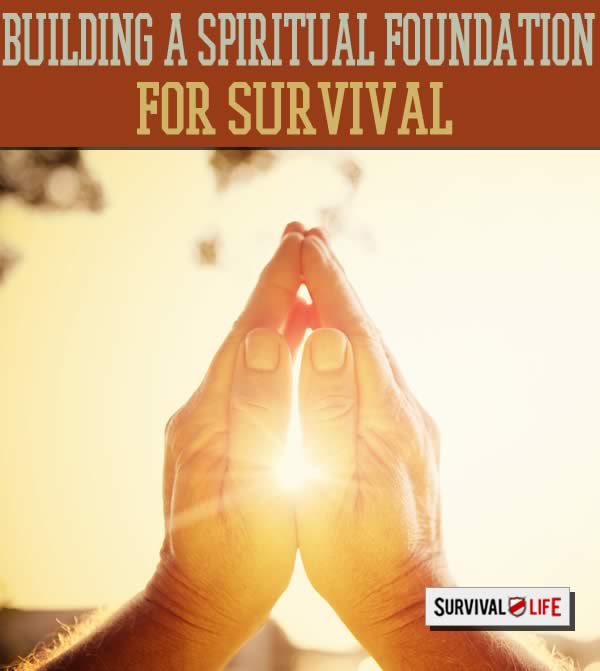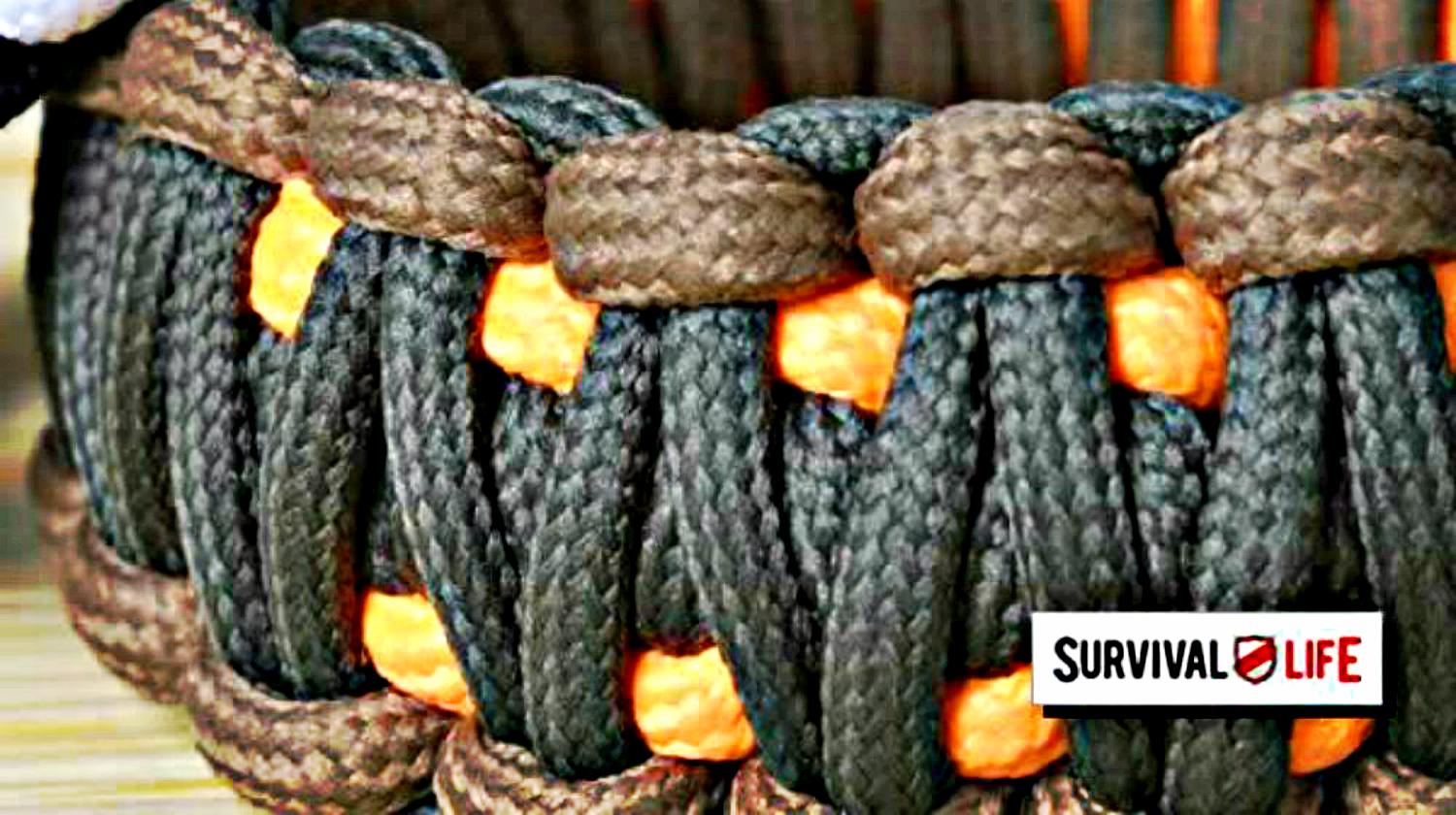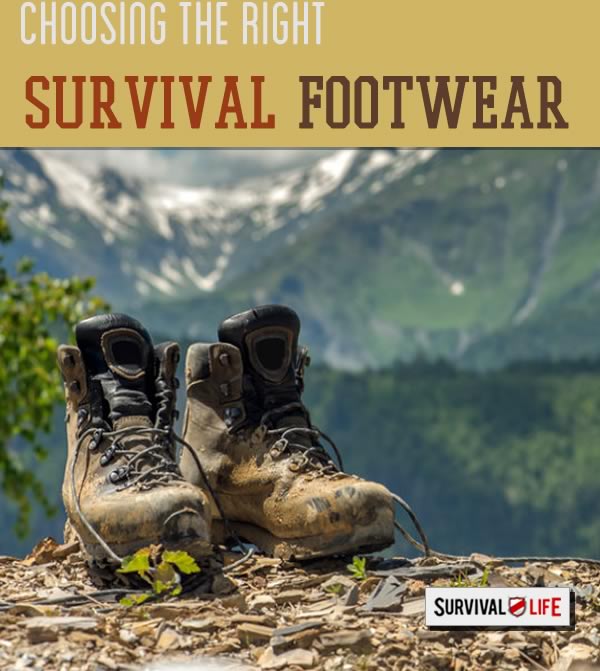Alternative Energy
Ready your Home for a Power Outage

Winter hit hard and fast this year. This week, every state in the country has experienced below-freezing weather, and for some there seems to be no end in sight. The folks up in Buffalo, New York are buried under five feet of snow and expecting more over the next few days. Many areas are under a blanket of snow and ice. And it’s only November, which means we have several more months of cold weather to look forward to. With all of this in mind, we should be preparing for all the inconveniences and dangers this kind of weather brings–including power outages.
Power outage is a reality for many people every winter. These outages can last hours, days, or even months. It’s easy to feel helpless during a power outage. We rely so much on electricity and the power grid that we tend to panic when it goes out.
But as we know, only those who aren’t prepared have any need for panic. The rest of us take precautions and make sure we’re ready for whatever might happen, including a winter power outage.
Ready your Home for a Power Outage
Don’t wait for an outage to happen to start searching for blankets, candles and flashlights. You’ll end up stumbling around in the dark trying to gather what you need. The best way is to stock up on lighting materials and other necessities in your emergency kit such as kerosene lamps, long-burning candles, flashlights and DIY torches. Don’t forget to keep matches, lighters and water proof batteries of various sizes.
Here are some more tips to help you ready your home for a power outage. Click here for the full post.
How to Prepare Your Household for a Power Outage
Everyone can remember the media outrage following Hurricane Katrina; New Orleans became a hotbed for violent criminal behavior long after the event. Catastrophes, natural and otherwise, that destroy our power sources and leave us in the dark elicit an ugly and familiar behavior in some: looting and theft. And while few natural disasters meet the tragedy of Hurricane Katrina, any event that takes away our power can leave us instantly exposed. Even those of us prepared with a home alarm system lacking an alternative power source can be invaded the moment our power fails. Here are a few tips to prepare your home for safety the next time you experience a power outage at home.
1. Have a plan ready with your family
Before a power outage happens, the best step you can take to make sure your family remains safe is to have a plan prepared. This includes:
plenty of unrefrigerated food
a water source/supply
an emergency kit including flashlights and medical supplies
reserve clothes and bedding
at least one alternative source of power
Your family should have a plan, including common routes and meeting locations. If anyone becomes lost, they should know where to find everyone. Another important aspect to assess in your plan is how long your household can survive in case the power outage is for an extended period of time; there should be a predetermined day in which you leave when you pass that number of days. If you have a nearby neighbor you trust, make arrangements with them. In survival situations, there is always strength in numbers.
2. Prepare different sources of light
For most criminals, a dark house equals an exposed house. It provides cover, allows easy access to your home, and indicates that any security measures you’ve equipped are likely now unplugged. Deter criminals and maintain your sanity by keeping plenty of alternative light sources somewhere specific that every member of your family is aware of, like a pantry or storage closet. Oil/battery operated lanterns, long-burning candles or fireplaces are potential ways to keep your home alight enough to deter crooks targeting a seemingly vacant defenseless home. Keeping motion sensing lights hooked to a generator at night for your lawn is an excellent precaution.
via How to Prepare Your Household for a Power Outage | Self-Sufficiency.
If budget permits, it would be a plus to invest on solar panels, garden stake solar lights and solar lanterns. With or without an outage these fixtures are definitely beneficial making the home bright and completely lighted without the charges, pun intended.
In the absence of lighting devices, firewood is the cheapest and easiest material to prepare. The burning flames coming from firewood can also be a signal to a team of rescuers who are searching for victims to save. Actually, firewood is an all-in-one emergency tool because it functions as a fuel for cooking, heating and light.
Light is essential during a disaster because this allows faster rescue operations and quick first-aid administration during night time. Even the smallest flashlight can aid in an emergency during a power outage.
We rely on power for so much in our lives. Living without it, even if only for a few hours, is a huge inconvenience–and for longer periods of time, it’s extremely dangerous
What Happens When Power Goes Out?
Emergency Lighting | Flashlight Power
Solar Ovens: Cooking on the Bright Side
-

 Do It Yourself7 months ago
Do It Yourself7 months agoParacord Projects | 36 Cool Paracord Ideas For Your Paracord Survival Projects
-

 Do It Yourself9 months ago
Do It Yourself9 months agoHow To Make Paracord Survival Bracelets | DIY Survival Prepping
-

 Do It Yourself9 months ago
Do It Yourself9 months ago21 Home Remedies For Toothache Pain Relief
-

 Do It Yourself10 months ago
Do It Yourself10 months agoSurvival DIY: How To Melt Aluminum Cans For Casting
-

 Exports8 months ago
Exports8 months agoAre Switchblades Legal? Knife Laws By State









Pingback: Ready your Home for a Power Outage | Survivalist Basics | Be Prepared For Anything!
keebler
November 19, 2014 at 11:16 AM
Great article—wish more people would quit being so stupid..driving in snow storms, stay the heck home.
obsidian
November 19, 2014 at 11:59 AM
That’s a big 10/4 unless you get caught out in the stuff unawares.
obsidian
November 19, 2014 at 11:58 AM
We have found the camping one and two mantle propane lanterns best for this emergency.
Stock up on four items to use these.
A reliable way to light a lantern, mantles (many of them these are the most fragile of supplies once burned, a welders torch and striker work very well), lantern glass globes (next most easy to break) a supply of propane in small or larger tanks. We use the small campers tanks but there is a way to utilize the bar-b-Que tanks with a two mantle camping lantern handy.
We have a stove that also uses propane.
If you use propane the supply in a much larger tank can heat the house.
Kerosene is our fall back of heat, light and warmth.
Fuel and globes are the most desirable of mass supplies it takes in our portable kerosene heater one gallon of heat per eight hours.
Sleeping bags are nice.
Frank Preece
November 19, 2014 at 12:16 PM
I Have Seen So Many E-Mails For Systems That Produce Free Electric, I Wonder If There Is Any Truth To These Claims. Any Answers Out There?
Pingback: Ready your Home for a Power Outage | Patriot Powered News
Dan in Colorado
November 19, 2014 at 4:47 PM
The candles in tall glass that you see at any street ‘memorial’ for someone who died are great. The glass protects against starting fires.
I find them in grocery stores, Walmart etc. I have a bunch stored away
in different locations in the house. I also have 2 solar ‘puck’ size
lights above my front door, and a solar garden stake lamp in storage.
Our local landfill has a ‘haz mat’ center where people drop off any hazardous materials such as propane bottles, white gas, lamp oil, denatured alcohol. All those items are free to anyone who wants them.
I have gotten dozens of free camping size propane bottles, gallons of white gas ($10 per gallon locally!) jugs of lamp oil and quart cans of denatured alcohol for cooking. Home heating will be a problem. I have a “Buddy” propane heater and a Kerosun heater. I also have a battery operated carbon monoxide detector that I use when those are in operation.
Silvercliff_46
November 19, 2014 at 6:24 PM
I have a three Coleman lanterns. They give excellent light, but we don’t care for the fumes. Instead we use several oil lamps. The light from them you will get you by. We have a wood stove, and always have plenty of wood. Our range is propane. We can cook on it without power. Besides basic survival and communication (cells phones, walkie talkie’s), information is also vital, this is done with several portable radios, including weather radios. One thing while not life saving, but at least life enhancing is entertainment. We have a small battery powered DVD player and several hundred DVD’s to help while away the hours. The internal battery is good for 5 hours, my 12 volt deep cycle will power it 24 hours a day for weeks. Toileting is taken care of with a porta pot that can be flushed down our regular toilet with creek water. If it is frozen, I can bust it open with a chisel or power auger. We have several guns, live in the middle of the woods, can gather all the meat we want and keep others from stealing it.
We are in our late 60’s, been there, done that, it ain’t our first rodeo.
Michael W. Perry
November 19, 2014 at 7:31 PM
Keep in mind that when power goes out more than briefly, there are likely to be other disaster scenarios, including high winds, an earthquake, or extremely cold weather. Preparing for a power outage isn’t enough. You need to prepare for that plus a badly damaged home or extremely cold weather. And a power outage will probably mean streets are difficult or impossible to drive on.
When such a situation happens, don’t forget to check on neighbors, particular those who are elderly or have health problems.
Finally, if you’ve got resources in excess of a disaster, see what you can do to help in an emergency. In Seatle, off-road clubs volunteer to drive people to necessary medical appointments (like dialysis) in snow storms.
Jeff
November 20, 2014 at 1:40 AM
Ok , so i’ ve been reading a lot of things to be prepared and im kinda new to all this. What is the best way to heat your house if you have no fireplace or wood stove?
Gordon Bruce Bone
August 9, 2018 at 4:37 AM
There are several. Huricane lamps (kerosine lamps with the wicks), small propane heaters. The small bottle can last several hours. There are adapter fittings you can use to hook up to larger cans. Ventilations is a must. Carbon dioxide will kill you. If you have a gas oven use it to heat. Block off other rooms to reduce heating resourse demand. Place candles under tera cotta pots. Dollar store candles, the taller ones in glass, help produce heat and can last up to 80 hours. There are many web sites to search. This is just a very small lsit of readily available, and inexpensive, supplies.
Mike
January 30, 2015 at 7:04 PM
For lighting, I have several LED lanterns that run on D-cell batteries, which I keep a large supply of on hand. I like this option for no fumes or fire hazard. Propane is not recommended for indoor use.
It is also recommended to have drinkable water on hand. I have multiple blue 55-gallon drums of water, treated for long-term storage, along with about 20 gallons of water in 16oz-128oz water bottles.
I agree with staying put, unless you absolutely have to leave your home.
For communications, I keep walkie-talkies with 32 mile range, along with a handheld 2 & 5 watt HAM radio, and a crank powered 5-band radio, which includes the weather channel.
Pingback: Winter Survival Tips: How to Stay Warm and Survive Winter Storms
Pingback: Power Outage: What To Do When The Power Goes Out
Patty
January 10, 2019 at 7:53 AM
I have read the comments. And have learn some new things. My question is if the disaster is bad enough then how is a radio going to help? I would think it would put out the stations.
Pingback: Power Outage: What To Do When The Power Goes Out - Survive!
Pingback: Power Outage: What To Do When The Power Goes Out – Ultimate Survival Alerts
Pingback: Power Outage: What To Do When The Power Goes Out - Survival Patch